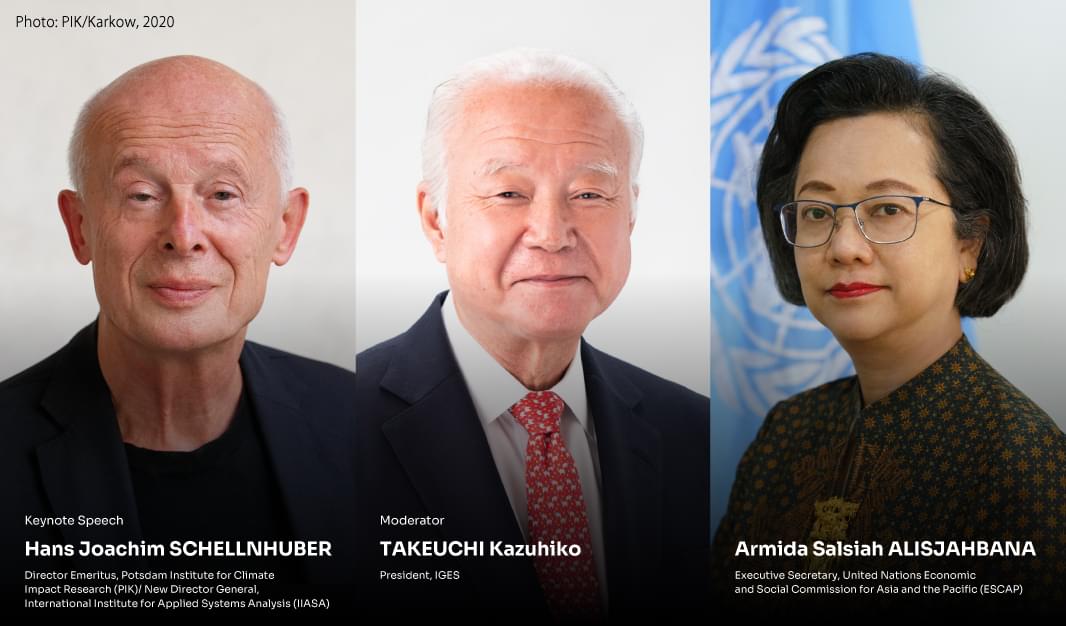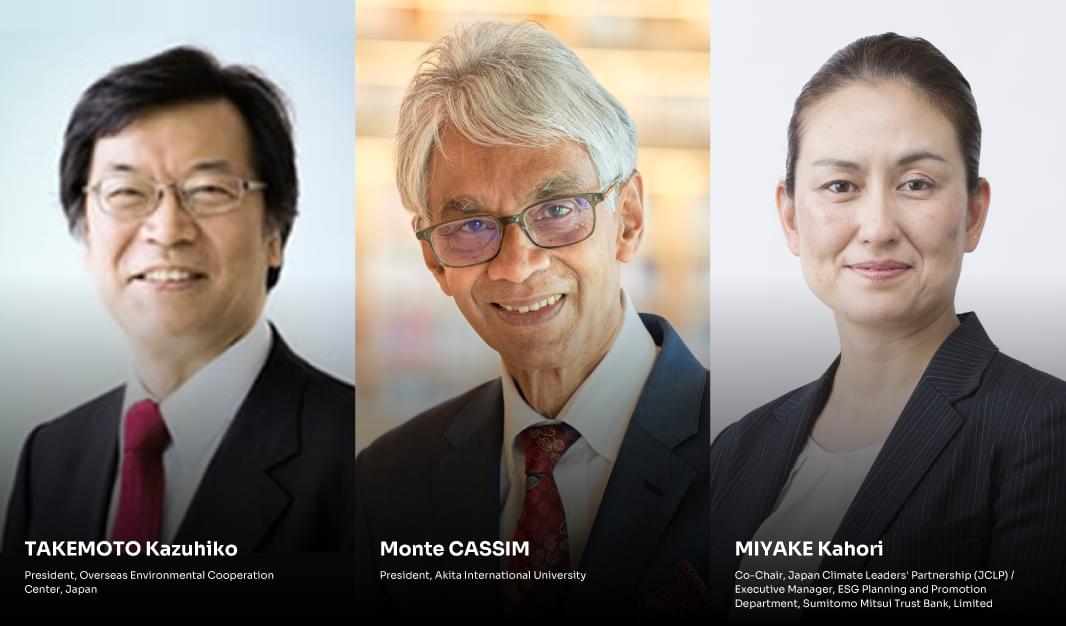Summary
The meeting was attended by high-level experts and practitioners from Japan and overseas who shared their views on the priority issues for transitioning a sustainable society and how they should be tackled in practice.
In his keynote speech, Hans Joachim Schellnhuber pointed out that the latest research clearly shows that global warming is progressing further, and the effects of pollution are jeopardising our civilization. Planetary boundaries may be transgressed, and there is urgency about the tipping elements (e.g., biodiversity loss, destruction of the Amazon rainforest, melting of the Greenland ice sheet) and their interactions in the Earth system that could occur beyond the tipping point. He also stated that to achieve the 1.5°C target of the Paris Agreement, managing the temperature overshoot is vital and that concrete actions are urgently required to achieve this. In particular, he observed the importance of initiatives related to the built environment and introduced the “New European Bauhaus” initiative, which aims to develop sustainable and regenerative architecture by integrating various fields with several stakeholders. The world faces a tremendous challenge to reach sustainability, which requires transitioning to a regenerative economy, transforming the built environment, and an intelligence revolution.
The keynote was followed by a panel discussion where participants exchanged views on the specific directions needed to transition to sustainability from the perspectives of the Asia–Pacific region and the urban, rural and industrial sectors. The first speaker stated that the transition to sustainability is a matter of survival and stressed that ESCAP’s efforts in the Asia–Pacific region, which is vulnerable to climate change and has an unfair share of climate impacts, focus on participatory foresight in addition to the three transformative dynamics that are the focus of ISAP2023. The Asia–Pacific region has unique advantages and can lead the way in innovation and localization. The second speaker then highlighted the need for the world to share and work together on priorities for transitioning toward a sustainable society. He also emphasised the growing efforts of cities, such as in Japan’s leading decarbonization areas, and introduced the Intergovernmental Panel on Climate Change (IPCC) Seventh Assessment Report (AR7) cycle, which is preparing a “Special Report on Climate Change and Cities.” The third speaker, a specialist in urban engineering and a university educator in Akita, emphasised the importance of building fair and equitable relationships between cities and rural areas. He also suggested building partnerships across regions, sectors and generations, involving industry and youth, to share best practices and creative approaches to change, and to work together to find lasting solutions. The fourth speaker stated that to transform industry and society, going beyond the relationship between business and policy and understanding the social tipping dynamics, including in finance and education, that affect many interacting elements and actors is vital. She then stressed the need to create a concrete roadmap to determine how quickly and where action should be taken.
Key Messages- Transition to a sustainable society is a matter of survival. It is necessary to address sustainability challenges in an integrated and inclusive manner with foresight and to promote collaboration.
- It is important to build partnerships across regions, sectors and generations, involving diverse stakeholders such as cities, industry and youth, to solve problems and work together on transformation.
- Transformation requires an understanding of the interconnectedness of social dynamics and a concrete roadmap on how quickly and where action should be taken.









-min.JPG)
-min.JPG)
-min.JPG)
-min.JPG)
-min.JPG)
-min.JPG)
-min.JPG)
-min.JPG)
-min.JPG)
-min.JPG)
-min.JPG)
-min.JPG)